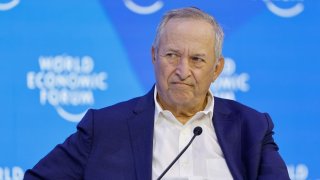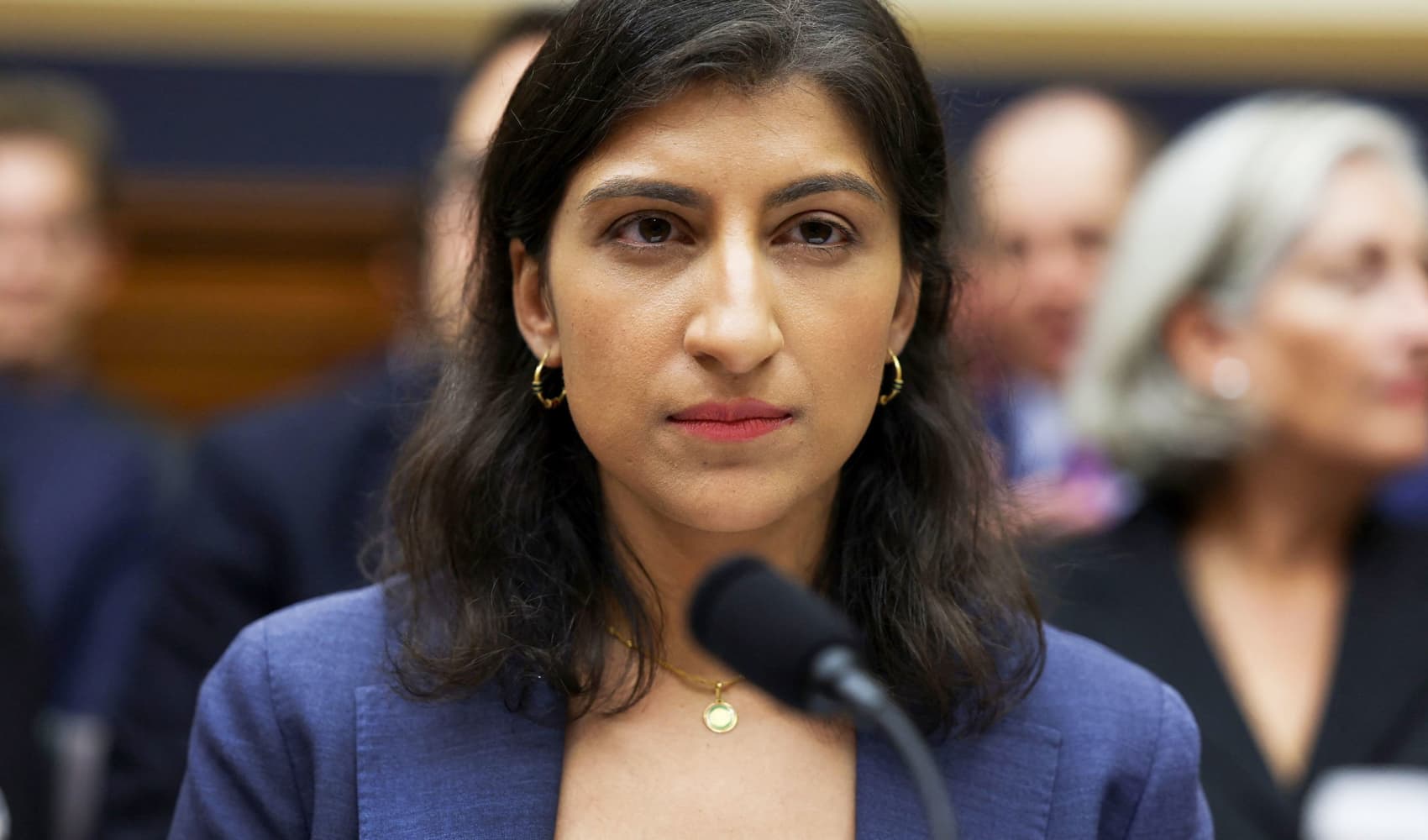
- Economist Larry Summers shared what he believes are the world's biggest near-term risks during a CNBC-moderated panel on the last day of the World Economic Forum in Davos, Switzerland.
- "I would note that the odds in my view are better than 50-50 that there will be a Covid-scale problem within the next 15 years and that the world is utterly unprepared for that eventuality," he said.
Economist Larry Summers would place better than 50-50 odds on the world being shaken by another Covid-scale event within the next 15 years.
The Harvard professor and former U.S. treasury secretary shared what he believes are the world's biggest near-term risks during a CNBC-moderated panel on the last day of the World Economic Forum in Davos, Switzerland.
Get New England news, weather forecasts and entertainment stories to your inbox. Sign up for NECN newsletters.
They included the possibility of the Covid-19 virus mutating again, which he noted that no other panelist had brought up when discussing the global economic outlook.
Summers took part in the session alongside IMF Managing Director Kristalina Georgieva, ECB President Christine Lagarde, French Finance Minister Bruno Le Maire and Bank of Japan Governor Haruhiko Kuroda.
Summers said his top concerns were a resurgence of inflation because of a loss of central bank credibility; high debt in many regions and the potential need for "financial firefighting domestically and globally" if interest rates rise more than anticipated; hyper-populism impacting elections; and geopolitical risks in Asia and the Middle East providing a "potential destabilizing wildcard."
Money Report
"I would note that the odds in my view are better than 50-50 that there will be a Covid-scale problem within the next 15 years and that the world is utterly unprepared for that eventuality," he said.
The IMF's Georgieva, meanwhile, shared her own economic concerns, including Chinese growth driving energy prices higher, the war in Ukraine harming lives as well as confidence, and a rise in unemployment coinciding with the cost-of-living crisis.
Concern about the pandemic has been low on the agenda at WEF this year, with discussions instead dominated by cautious optimism on global growth prospects, China's reopening, interest rates, the cost of living, trade disputes, climate change and the war in Ukraine.
Where it has been a topic of discussion, it has generally been around risks to the Chinese population as it experiences a spike in infections.






